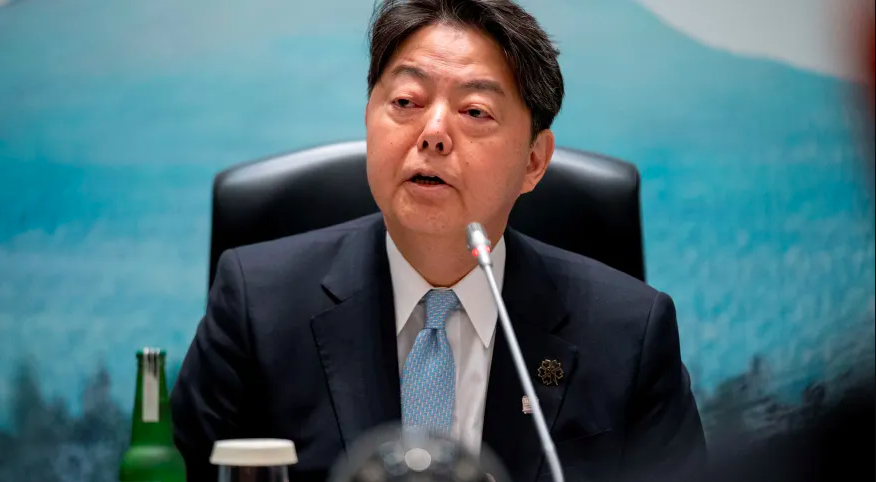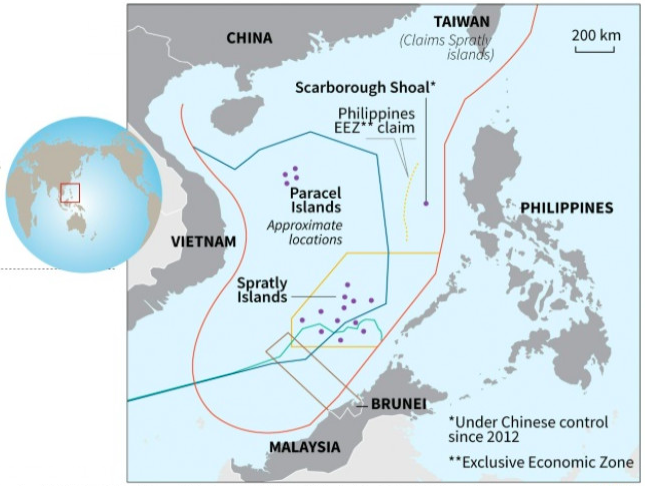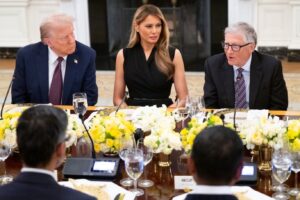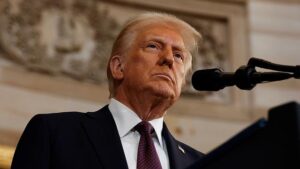
Published 05/06/2023 16:48 | Edited 6/6/2023 1:36 PM
The new Cold War is rapidly expanding its tentacles in Asia, as the announcement came out that Japan intends to open a “liaison office” with NATO, the powerful military alliance headed by the United States and European countries. Thus, the political-economic conflict between the blocks of western countries (United States, Canada and the European Union) and the China-Russia duo is intensified, which has already deteriorated significantly since the war in Ukraine.
Now, the delicate issue of Taiwan, traditional Chinese territory under self-government, is the alibi for a containment of Chinese economic power and maintenance of US imperialist influence.
“We are already in discussions, but no details have been finalized yet,” Japanese Foreign Minister Yoshimasa Hayashi said shortly before the G7 summit in Hiroshima. “The reason we are arguing about this is that since Russia’s aggression against Ukraine, the world has become more unstable,” he said.
Also read: Sanctions on Russia turn G7 summit into NATO “pull”
Although he denies bad intentions towards any country, the Japanese chancellor hinted at evasions. “We are not offending anyone, we are defending ourselves against any kind of interference and concerns and in some cases threats,” he said.
The chancellor added that Japan is not a member of the NATO treaty, which stands for North Atlantic Treaty Organization – but that the move sends a message that the bloc’s Asia-Pacific partners are “engaging in a very constant way”. with NATO.
If it comes to fruition, it will be the first time that NATO would have arms installed in Asia, beyond its previously determined Atlantic area of influence. But the invasion of Ukraine by Russia was the trigger for a whole military realignment, with several countries strengthening their defenses in case of a conflict. Sweden and Finland have abandoned their military neutrality and are also asking for NATO protection.
Read also: Finland in NATO and the “backfire”
In the last two decades, Chinese influence has also crossed oceans, not with military or weapons, but by financing infrastructure in several developing countries in Latin America and Asia, but mainly in Africa. It also forged ties with island countries in the Pacific, a region that has been overlooked by US influence in recent years.
However, the open hostility of US governments is not ignored by China, the second country with the highest annual defense spending, behind only the United States. The Asian giant has expanded its portfolio of nuclear warheads, aircraft carriers and fighter jets, tanks and other vehicles.
Chinese Foreign Ministry spokesman Mao Ning commented on NATO’s “interference” in an interview. “Asia is a promising land for cooperation and a focus for peaceful development. It should not be a platform for those who pursue geopolitical struggles.”
Read also: China and the possible balance in the NATO-US-Ukraine vs Russia conflict
“NATO’s eastward thrust and interference in Asia-Pacific affairs will definitely undermine regional peace and stability,” he added. China has reinforced Russian rhetoric that NATO helped to cause the conflict in Ukraine.
Taiwan’s rebellion has always been treated by communist China as a battle to be won by fatigue. However, just like Ukraine, which spread its wings against Russia to please the Americans, the island in the China Sea has also been playing the same role, in dangerous provocations against China.
The Xi Jinping regime does not rule out a military invasion if the island officially declares its independence. In recent years, however, the United States and Europe have expanded commercial partnerships with Taiwan, in addition to using the Taiwanese for political provocation.
Also Read: NATO Summit Highlights Anti-China Goals in Ukraine Conflict
This and other factors, such as the tension in the Korean Peninsula, turn the Pacific region into a pressure cooker that is not used to bad Western jokes involving the military. However, Japan recently announced plans for its biggest military build-up since World War II.

China claims the Senkaku Islands, an uninhabited Japanese-controlled chain in the East China Sea, as its sovereign territory. However, not even in Taiwan has there been open military confrontation between China and any country, unlike the US.
With frequent military exercises in the Pacific by the different blocs, Japan decided to position itself in the region by approaching NATO, demonstrating that it and South Korea have strong allies in the West. Australia and New Zealand have also reinforced this show of strength.
In March, senior Chinese Foreign Ministry officials and influential Communist Party publications accused the United States of trying to build a NATO-like bloc in the Indo-Pacific, with an official warning of “unimaginable” consequences.
Source: vermelho.org.br

